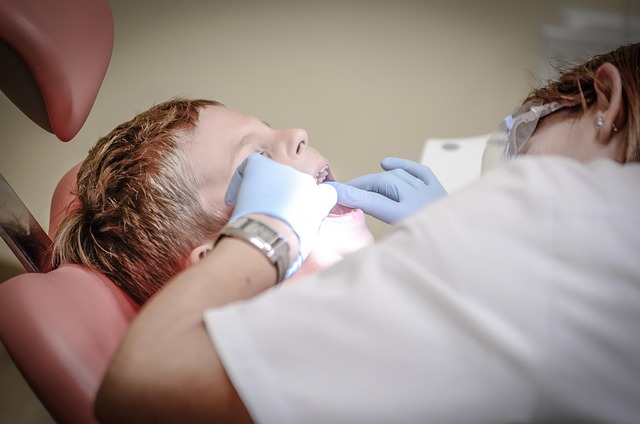Curious About One Day Dental Implants? Here’s What You Need to Know
One day dental implants represent a significant advancement in restorative dentistry, offering patients the possibility of receiving a new tooth in a single appointment. This innovative approach combines immediate implant placement with same-day crown attachment, potentially eliminating the traditional waiting period of several months. Understanding the process, qualifications, and considerations involved can help you make an informed decision about whether this treatment option aligns with your dental needs and expectations.

Modern dentistry has revolutionized tooth replacement options, with one day dental implants emerging as a popular solution for patients seeking immediate results. This procedure involves placing a titanium implant into the jawbone and attaching a temporary or permanent crown during the same visit, allowing patients to leave with a functional tooth.
Technology and Techniques Behind Same-Day Procedures
One day dental implant procedures rely on advanced digital imaging and computer-guided surgery to ensure precise placement. Cone beam computed tomography (CBCT) scans create detailed 3D images of your jawbone, allowing dentists to plan the exact positioning before surgery. Computer-aided design and manufacturing (CAD/CAM) technology enables the creation of custom crowns during your appointment. Some practices use guided surgery templates, which act as precise drilling guides to ensure optimal implant placement. The immediate loading technique requires sufficient bone density and primary stability to support the implant and crown from day one.
Who Qualifies for Immediate Implant Placement
Not every patient is a candidate for one day dental implants. Ideal candidates typically have adequate bone density and volume to support immediate implant placement. Your overall health plays a crucial role, as conditions like uncontrolled diabetes or active gum disease may disqualify you from this procedure. Non-smokers generally have better success rates, though some dentists may work with patients who commit to quitting. The location of the missing tooth matters too, as front teeth often have better success rates for immediate loading compared to molars that endure greater chewing forces. Your dentist will evaluate your bite, oral hygiene habits, and commitment to follow-up care when determining candidacy.
Cost Considerations for One Day Dental Procedures
The investment in one day dental implants varies significantly based on location, complexity, and materials used. Understanding the financial aspects helps you plan accordingly and compare options effectively.
| Provider Type | Service Offered | Cost Estimation |
|---|---|---|
| General Dentist | Basic same-day implant | $3,000 - $5,000 |
| Oral Surgeon | Surgical placement with crown | $4,000 - $6,500 |
| Periodontist | Specialized implant treatment | $4,500 - $7,000 |
| Prosthodontist | Complex restoration cases | $5,000 - $8,000 |
Prices, rates, or cost estimates mentioned in this article are based on the latest available information but may change over time. Independent research is advised before making financial decisions.
Several factors influence the total cost, including the need for bone grafting, the type of crown material selected, and geographic location. Urban areas typically have higher fees than rural locations. Some dental insurance plans may cover a portion of the implant procedure, though coverage varies widely. Many practices offer financing options or payment plans to make treatment more accessible.
Recovery and Long-Term Success Expectations
Recovery from one day dental implants typically involves managing mild discomfort and following specific care instructions. Most patients can return to work within a day or two, though you should avoid hard foods for several weeks. The temporary crown may have eating restrictions until the permanent restoration is placed. Long-term success rates for immediate implants are generally comparable to traditional implants when proper case selection occurs. Regular dental checkups and excellent oral hygiene remain essential for maintaining your investment. Some patients may require crown adjustments or replacements over time as part of normal maintenance.
Potential Limitations and Alternative Options
While one day dental implants offer convenience, they may not suit every situation. Complex cases involving significant bone loss or multiple missing teeth might require traditional staging approaches. Some patients benefit from a healing period before crown placement to ensure optimal integration. Alternative options include removable partial dentures, dental bridges, or traditional two-stage implant procedures. Each approach has distinct advantages and limitations that your dentist can explain based on your specific circumstances.
One day dental implants represent an exciting advancement in restorative dentistry, offering qualified patients the opportunity to restore their smile in a single appointment. Success depends on careful case selection, advanced technology, and skilled execution by experienced professionals. While the convenience and immediate results appeal to many patients, thorough evaluation and realistic expectations remain essential for optimal outcomes. Consulting with a qualified dental professional will help determine whether this innovative treatment option aligns with your individual needs and circumstances.
This article is for informational purposes only and should not be considered medical advice. Please consult a qualified healthcare professional for personalized guidance and treatment.




